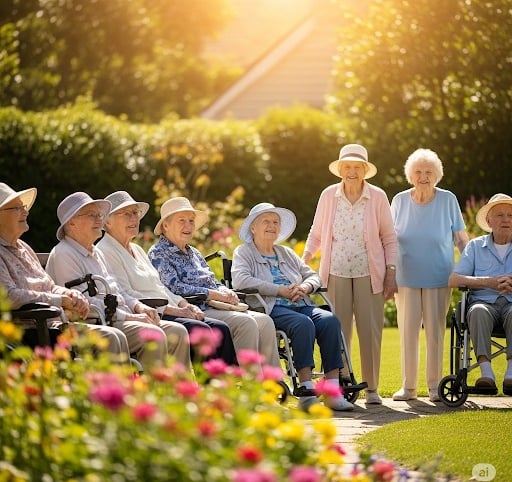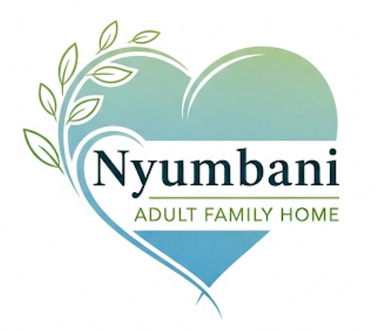Welcome to Nyumbani Adult Family Home: Your Home Away From Home, offering exceptional, personalized care, creating a true home away from home.
Why Low Caregiver-to-Resident Ratios Matter: Inside Nyumbani Adult Family Home’s Approach to Quality Care


Why Low Caregiver-to-Resident Ratios Matter: Inside Nyumbani Adult Family Home’s Approach to Quality Care
Introduction
One of the most important yet overlooked factors in senior care is the caregiver-to-resident ratio. This simple number has a profound impact on the quality of life for residents, the ability to deliver personalized care, and the overall satisfaction of families. At Nyumbani Adult Family Home in Federal Way, we intentionally maintain a low caregiver-to-resident ratio to ensure every individual receives consistent, compassionate attention. This article examines why this commitment is important, how it influences our daily operations, and what families should consider when selecting a care facility.
What is a Caregiver-to-Resident Ratio and Why Does It Matter?
The caregiver-to-resident ratio refers to the number of caregivers available relative to the number of residents in a facility. For example, a 1:6 ratio means one caregiver is responsible for six residents. In contrast, Nyumbani maintains an average ratio closer to 1:2 or 1:3, well below the state-allowed maximums. This smaller ratio translates into:
Faster response times to emergencies or needs
More opportunities for relationship-building
Greater attention to detail in care
Reduced caregiver burnout and turnover
How It Impacts Resident Health and Safety
Senior residents often deal with multiple chronic conditions such as diabetes, heart disease, or dementia. Prompt care and monitoring are essential. A lower ratio allows caregivers at Nyumbani to:
Monitor health changes in real time.
Administer medications accurately and on schedule.
Provide daily assistance with mobility, toileting, and hygiene without delay.
This proactive approach greatly reduces risks like falls, pressure sores, and hospital readmissions.
Emotional and Social Benefits
High staff availability means residents are never rushed through their routines. At Nyumbani, caregivers have time to:
Share meals and conversation.
Participate in hobbies with residents.
Celebrate birthdays and cultural holidays.
Provide companionship and emotional support.
These daily interactions foster trust and reduce feelings of isolation and depression among residents.
Case Study: The Difference One More Caregiver Makes
Consider two similar homes: one with a 1:6 ratio and another with a 1:3 ratio. In the 1:6 model, a caregiver must divide their time among six residents in the same period. In a single hour, each person receives only 10 minutes of attention. Contrast that with 20 minutes per resident in the 1:3 home. That additional time makes a tremendous difference in care quality, especially when mobility assistance, medication needs, or emotional conversations arise.
At Nyumbani, we’ve seen how just one more caregiver per shift improves the environment for everyone—staff and residents alike.
How Our Low Ratio Enhances Personalized Care
Our individualized care plans (described in Article 1) are only as effective as their execution. The low caregiver ratio ensures:
Daily progress notes are carefully written.
Adjustments to care plans are noticed and implemented promptly.
Family concerns are addressed quickly and thoroughly
For instance, if a resident suddenly shows signs of withdrawal or weight loss, it doesn’t take a weekly meeting to spot the issue—our team sees it the same day.
Reducing Caregiver Burnout
One hidden benefit of a low caregiver-to-resident ratio is staff well-being. When caregivers are overburdened, they become fatigued, emotionally drained, and more likely to leave their jobs. At Nyumbani:
Staff have manageable workloads.
Emotional connections with residents are deeper and more satisfying.
Job satisfaction is high.
This consistency allows our caregivers to remain long-term, providing continuity for residents and avoiding the stress of frequent turnover.
What Families Say
Families often tell us how relieved they are to see their loved one receiving focused attention. One daughter noted, “At the last facility, my mom was just another name on a chart. At Nyumbani, she’s a person—they know what kind of tea she likes, her favorite music, and how she takes her medications. That’s because they have time.”
Questions to Ask When Touring Adult Family Homes
When searching for the right adult family home, families should ask:
What is your average caregiver-to-resident ratio?
Are staff available 24/7, including overnight?
What is your staff turnover rate?
How are caregivers trained to handle resident-specific needs?
Can residents and families provide feedback on staff performance?
Nyumbani welcomes these questions and proudly shares our commitment to quality staffing.
The Regulatory Context: Meeting and Exceeding Standards
Washington state requires certain minimums for staffing in adult family homes, especially for residents with complex medical or memory care needs. However, Nyumbani doesn’t aim to merely meet these minimums—we aim to exceed them. Our ratios are designed not for compliance, but for excellence.
Low Ratio, High Value
Some may wonder if the lower ratio increases the cost of care. At Nyumbani, we believe the value it adds far outweighs the price. Reduced medical emergencies, greater resident satisfaction, lower staff turnover, and peace of mind for families all contribute to overall savings and quality of life.
Conclusion
At Nyumbani Adult Family Home, we see our low caregiver-to-resident ratio as the cornerstone of exceptional elder care. It allows us to deliver highly personalized, compassionate service in a safe and supportive environment. When seniors are treated like family, and caregivers are empowered to give their best, everyone wins.
If you're searching for a home where your loved one is never overlooked and always supported, come experience the Nyumbani difference.
Contact us today to learn more or schedule a personalized tour.
Care
Compassionate support for adults with needs.
Dignity
Safety
Email : info@nyumbaniafh.com
Phone : 205-566-9093
© 2025.Nyumbaniafh All rights reserved.
